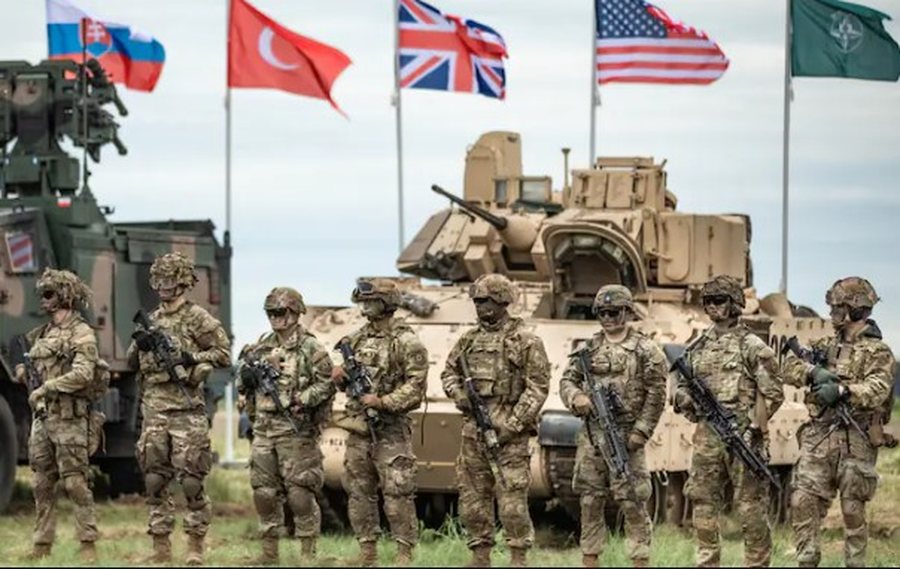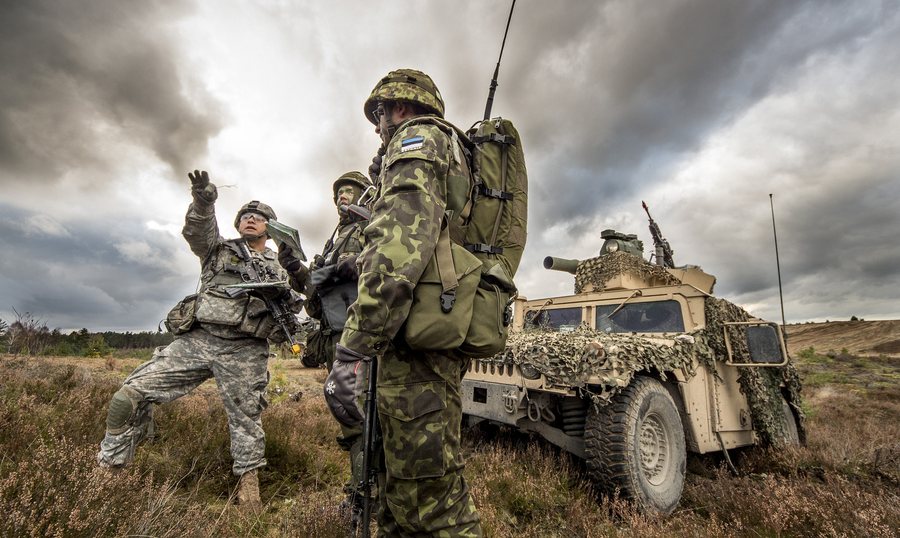
The EU Commission presented in a strategic document how the EU can better defend itself. Above all, it is about protection from Russia.
"How important defence is to us is shown by how much we invest in defence. And over the last ten years, it has not been very important to us," said EU foreign policy chief Kaja Kallas at the presentation of the EU's new defence strategy in Brussels. The world has not seen such turmoil since 1945, she added. It is time to act.
The European Union Commission has presented the so-called White Paper on EU defence capabilities. The strategic document aims to show how the EU and its member states can become more resilient in the defence sector by 2030. One of the main reasons for the increase in defence needs is Russia.
"If Russia is allowed to achieve its goals in Ukraine, its territorial ambitions will continue to expand. Russia will remain a fundamental threat to European security for the foreseeable future," the document states.
Defense plans need to be expanded, EU Defense Commissioner Andrius Kubilius said. Some European intelligence agencies believe Russia is likely to test NATO's commitment to mutual assistance by 2030, he warned.
The "White Paper" refers not only to Russia, but also to an increasingly aggressive China, the insecurities in the Middle East caused by the fall of the Assad regime in Syria and the situation in Gaza. Other dangers came from hybrid threats such as cyberattacks and acts of sabotage on infrastructure.

Military skills
To become more resilient, the EU Commission has identified critical areas in which member states need to expand their capabilities. In addition to air defense, missile defense, artillery systems and drones, this also includes military transport capabilities. With its strategy, the EU also wants to secure new funds on a large scale.
The Commission stresses that it is still the Member States that take care of the field of defence. But we want to ensure that existing resources are used as efficiently as possible. For example, by jointly developing, producing and marketing weapon systems. A major problem for European defence is the many different weapon systems in the Member States, which are not always compatible with each other.
Financing through new debt
Two weeks ago, EU Commission President Ursula von der Leyen presented her "Rearm Europe" plan to mobilise €800 billion for defence spending over the coming years. To this end, the permissible debt burden for EU member states will be increased to 1.5 percent of their gross domestic product, which will enable defence spending of up to €650 billion. The EU aims to make a further €150 billion available to its member states in the form of loans.
Several EU countries are expected to benefit from the EU's favourable lending conditions. These funds are intended to encourage joint arms purchases between different EU states and their partners, such as Norway or Ukraine. Purchases are allowed by EU-based companies and if 65 percent of the components are of European origin.
The arms industry welcomes the proposals, especially the call for more joint procurement. From the industry's perspective, orders with a long-term perspective are important for security planning, according to the European Aerospace, Security and Defence Industries Association.
Support for Ukraine remains a focal point
A key objective of the strategy is continued military support for Ukraine. The so-called "porcupine" strategy involves arming Ukraine to the extent that it is able to defend itself against any aggressor. Ukraine will remain at the forefront of European security and defense policy, the White Paper states.
It is the "central arena for determining what the new international order will look like." In addition to concrete military assistance, Ukraine should also be included in EU initiatives.
Expanding partnerships
The White Paper also reflects the changing role of the US. The United States is described as a traditionally strong partner, but it becomes clear that the US will reduce its role as the "main security guarantor."
Defense Commissioner Kubilius puts it this way: "450 million citizens of the European Union should not rely on 340 million Americans to defend themselves against 140 million Russians who cannot defeat 38 million Ukrainians."
Bilateral dialogue with the US will continue and cooperation will be strengthened in several areas. In particular, they want to increase cooperation on security and defense issues with NATO. But also with other countries such as India. The proposals will then be discussed by the member states.
While the conservative EPP group generally welcomes the White Paper, the liberal Renew group and the Greens consider it too unambitious. Green Party MEP Hannah Neumann calls for "real strategic independence" in terms of financing. In their view, Eurobonds - i.e. joint issuance of debt - and a specialized European defense bank should also be discussed. /DW/ (A2 Televizion)











